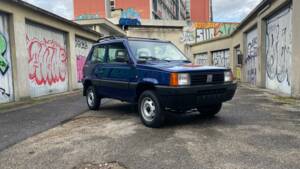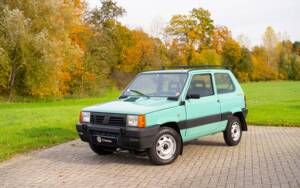FIAT Panda Classic Cars for Sale
The Fiat Panda stands out as one of Fiat’s most innovative small cars, cherished for its practical design and robust technology. Particularly the first generation (Tipo 141) has become a favourite among enthusiasts due to its simple mechanics, everyday usability, and unfiltered charm. Minimalist, affordable, and surprisingly adaptable, the Panda has proven itself equally on rough country tracks and city streets.
Search results
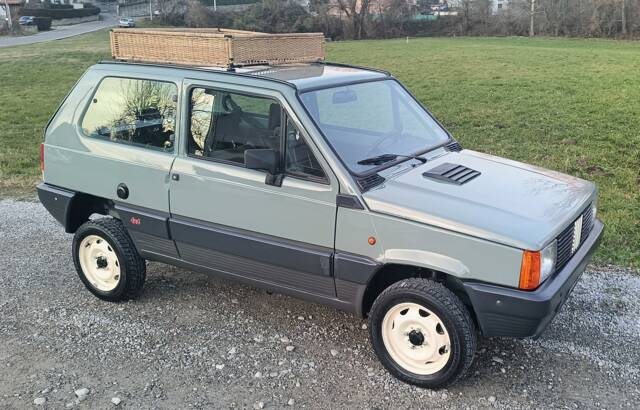
VAT is reclaimable

1999 | FIAT Panda 4x4 "Trekking"
Véhicule conservé, matching number
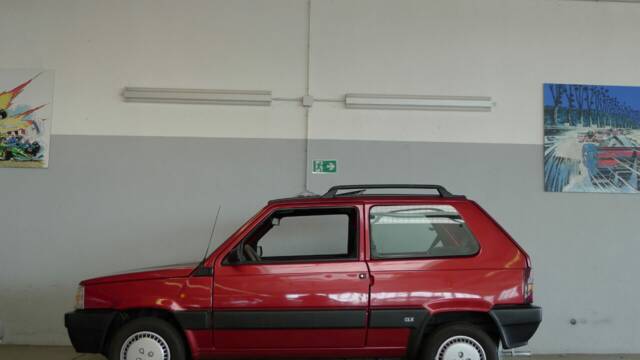
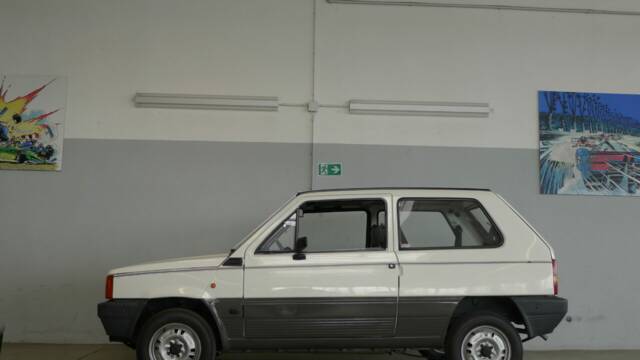
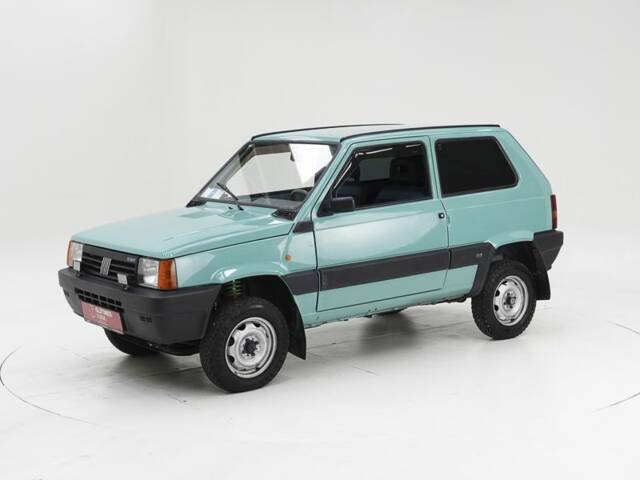
1997 | FIAT Panda 4x4
1997 Fiat Panda 4x4 '97

2000 | FIAT Panda 4x4 "Trekking"
82.000 km! Originalzustand!
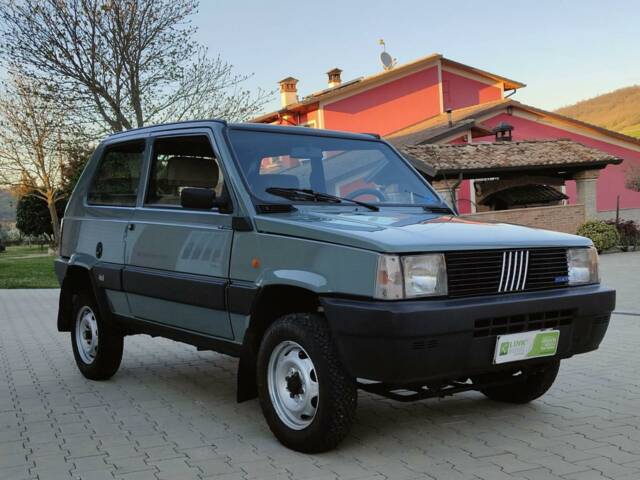
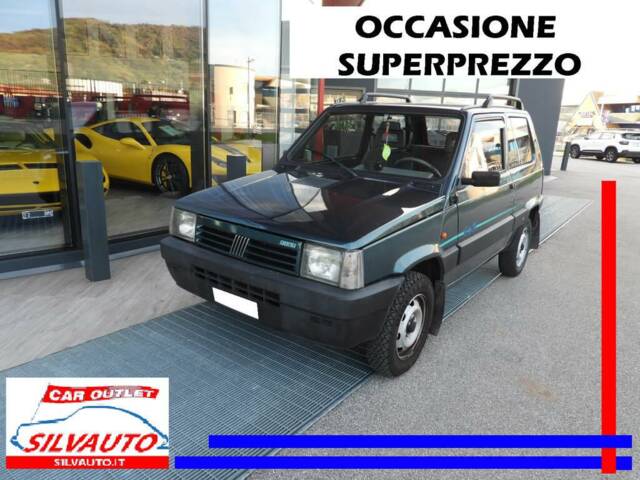
1995 | FIAT Panda 4x4
FIAT PANDA 4X4 1.1 COUNTRY CLUB (1995) UNICO PROPRIETARIO – CONSERVATO – DI SICURA RIVALUTAZIONE
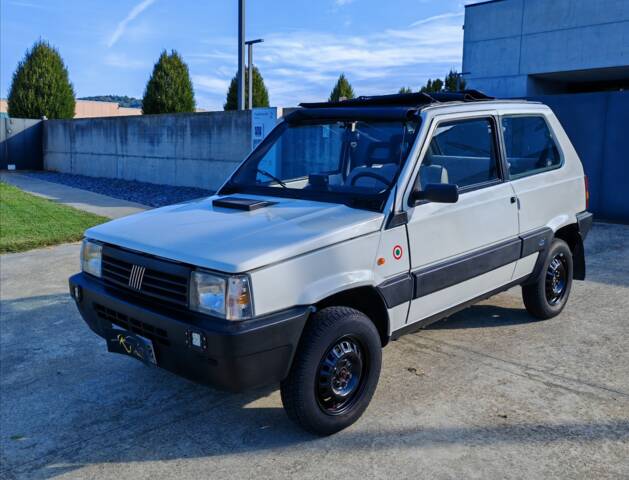
1986 | FIAT Panda 4x4 1,0
STEYR PUCH !!! DOUBLE SUNROOF !!! 100% FIRST PAINT !!
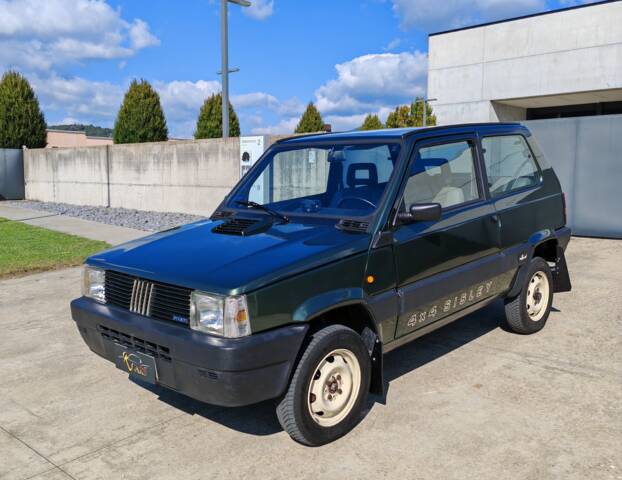
1990 | FIAT Panda 4x4 1,0
SYSLEY !! COMPLETLY RESTORED !!
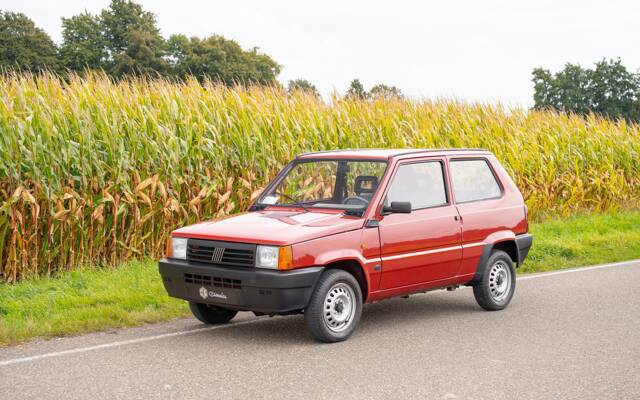
2000 | FIAT Panda "Young"
8900 km! Erstlack! 1. Hand!
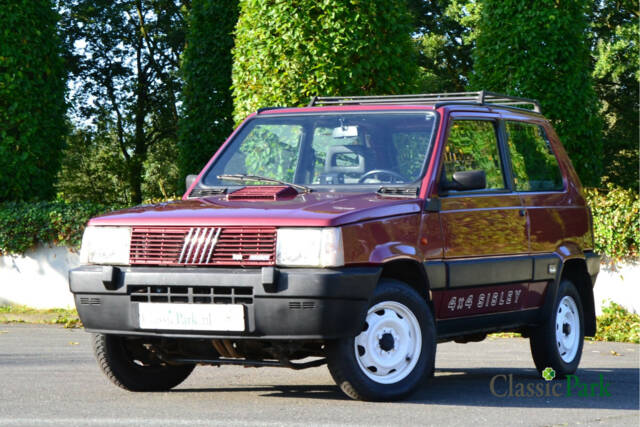
1990 | FIAT Panda 4x4 1,0
Fiat Panda 4x4 Sisley
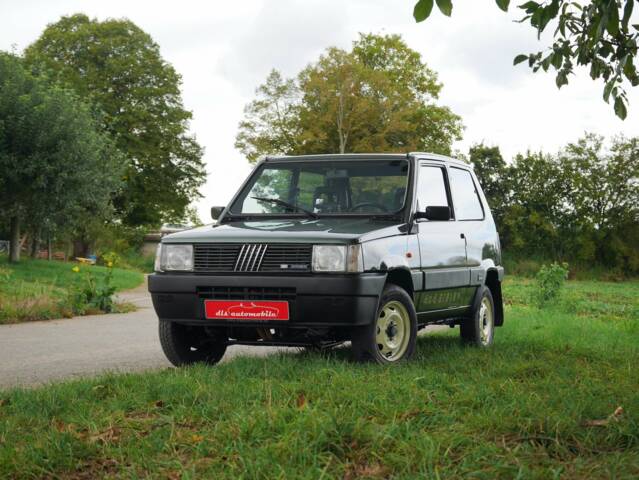
1989 | FIAT Panda 4x4 1,0
Fiat Panda 4x4 Sisley // 1989 // 95t km // top!
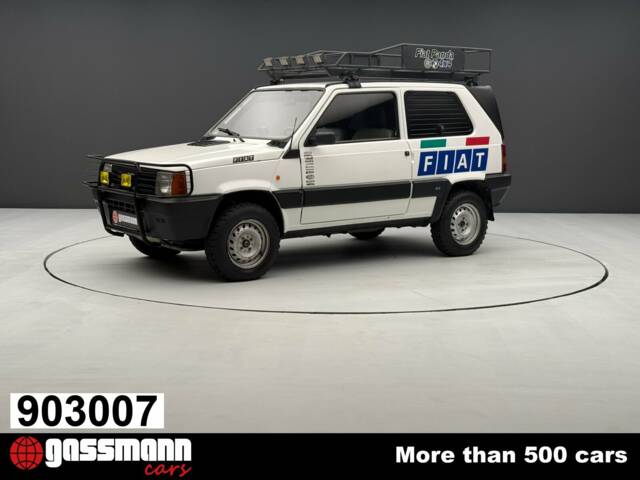
1999 | FIAT Panda 4x4
Panda 1100 Van 4x4

1985 | FIAT Panda 4x4
FIAT Panda 45 1a serie 956 cc 48 CV 4x4 Iscritta ASI
History of the Fiat Panda
Launched in 1980, the Fiat Panda was conceived as a true utility car, serving as an accessible mobility solution for a wide audience. Its crisp, boxy silhouette—imagined by Giorgetto Giugiaro—departed radically from the rounded shapes common in the segment. The Panda’s purpose-driven approach gained traction quickly: with over four million cars built in the first series alone, it established itself as a staple of practical motoring. Culture and reputation grew around its role not only as a family’s second car but also as a tool for both rural dwellers and city drivers across Europe. Over the decades, it spawned numerous special versions, cementing its reputation for rugged dependability.
Model History
The Panda’s roots begin with the Tipo 141, produced from 1980 until 2003, setting a record for its longevity. Powered initially by simple OHV engines, it transitioned in 1986 to the advanced and reliable FIRE engines, which brought improvements in efficiency and ease of maintenance. The Panda line evolved in 2003 into the Tipo 169 (second generation), featuring modernised suspensions and electronics. In 2011, the Tipo 319 (third generation) arrived, introducing further technical advances, a mild-hybrid option, and updated safety equipment. Variants included both front-wheel and all-wheel-drive (‘Panda 4x4’) options. Predecessors to the Panda don’t exist in a direct sense, but it was positioned as a response to cars like the Citroën 2CV and Renault R4. Successfully, the Panda remains in production today, reflecting its lasting appeal.
Highlights and Special Features
Few car models blend utility, economy, and quirky practicality quite like the Fiat Panda. Its greatest strengths include the lightweight structure (about 700 kg), durable mechanics, and the versatile nature of the original three-door body with a large rear hatch. The 4x4 version, introduced in 1983 and developed with Steyr-Puch, increased the Panda’s reputation in mountainous and rural regions. The Panda’s enduring popularity is reflected in its special editions and custom colours. The Tipo 141 outperforms all other Panda codes in terms of supply and demand: among all classic Panda listings, 98.6% are of this first-generation code, and it accounts for 99.2% of all views for Panda classics in our marketplace. This dominance is unmatched among comparable Fiat classics.
Technical Data
Special Editions and Collectible Models
Several limited and distinctive Panda models were offered. The Panda 4x4 Sisley (1987), initially limited to 500 units, featured metallic paint, unique stickers, an inclinometer, special alloy wheels, roof rack, headlamp washers, bonnet scoop, and enhanced upholstery. This edition, highly regarded among collectors, later became a regular model from 1989. Many short-run paint and trim configurations as well as dealer-converted pick-ups and the rare Abarth or cabriolet adaptations add diversity to the classic Panda landscape.
Weak Spots and Common Issues
Type 141 Pandas are celebrated for their mechanical robustness but are infamous for corrosion problems. Key rust hotspots include door bottoms, wheel arches, sills, inner B-pillars, and turret mounts. Boot and floor panels—especially under mats—often hide rot. Rear wheel housings can rust through, risking seatbelt anchor integrity. Mechanical concerns mainly centre around cylinder head gaskets on FIRE engines, vague gearboxes, and clutch failure (especially worn release bearings or broken springs). Handbrake inefficiency is commonplace. Electrical gremlins stem from corroded connections and ground issues. Strut mounts and springs may break on well-used examples, while panoramic roof versions sometimes leak. For any Panda, a thorough rust inspection—including under carpets and behind plastic trim—is vital before purchase. Later models suffer less from rust but should be checked for suspension wear and electronic faults.
Engine, Transmission, and Handling
Early Pandas ran on basic OHV units; from 1986, most were fitted with lively FIRE engines. Power ranged from 30 to 55 PS, providing zippy response given the car’s low mass. Most Pandas use a five-speed manual gearbox; the famous Selecta model included a CVT automatic. The 4x4, especially with Steyr-Puch mechanicals, delivers unexpected off-road ability and is sought after in mountainous regions. Ride is firm but seats are famously resilient, and handling is lively, suited for both tight urban turns and occasional rural adventures. - Panda 4x4 (all years): Noted for its off-road capacity and Alpine credentials.
- Panda 4x4 Sisley: Collectors prize this for both unique features and rarity.
- Panda 1.0/1.1 FIRE: Famed for robustness and easy parts availability.
- Panda Selecta: Automatic transmission, unusual in this segment.
Design, Features, and Comfort
Giorgetto Giugiaro’s design for the Panda epitomised 1980s utility: sharp lines, large glasshouse, and a spartan yet functional interior. Noteworthy are the removable hammock-style rear seats and the hard-wearing, colour-shifting fabric choices. ‘Garden chair’ front seats and straightforward dashboards make for a lightweight, practical approach. The huge rear hatch and flat load floor maximise usability. A wide colour palette and the option of folding/canvas roofs—often as extras—brought unexpected variety. Accessories included roof racks, radios, alloy wheels, and rarities like inclinometer compasses or special trim.
Other Notable Features
Various Pandas were used as commercial pick-ups or converted into open-top models; several body conversions were done by independent firms (Scioneri, KK). Pandas also appeared in motorsport and charity events, including custom Abarth and rally builds. Certain special models, such as those with period-correct accessories, stand out today for their originality and story.
Summary
As a classic, the Fiat Panda combines minimalist Italian utility with enduring affordability. With most surviving examples coming from the first generation (Tipo 141), parts availability is still good, and maintenance remains straightforward. Its reputation for being tough and honest in design, paired with options like 4x4 and unique special editions, ensures a steady fan base and high visibility in the classic marketplace.

